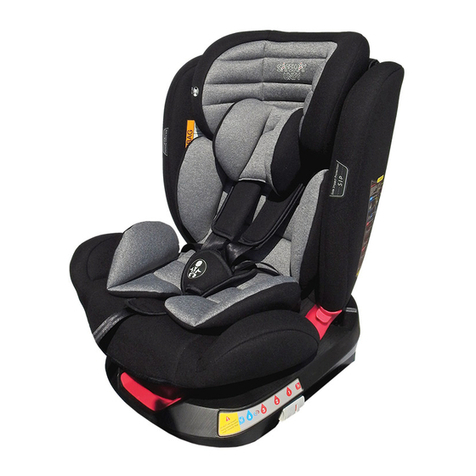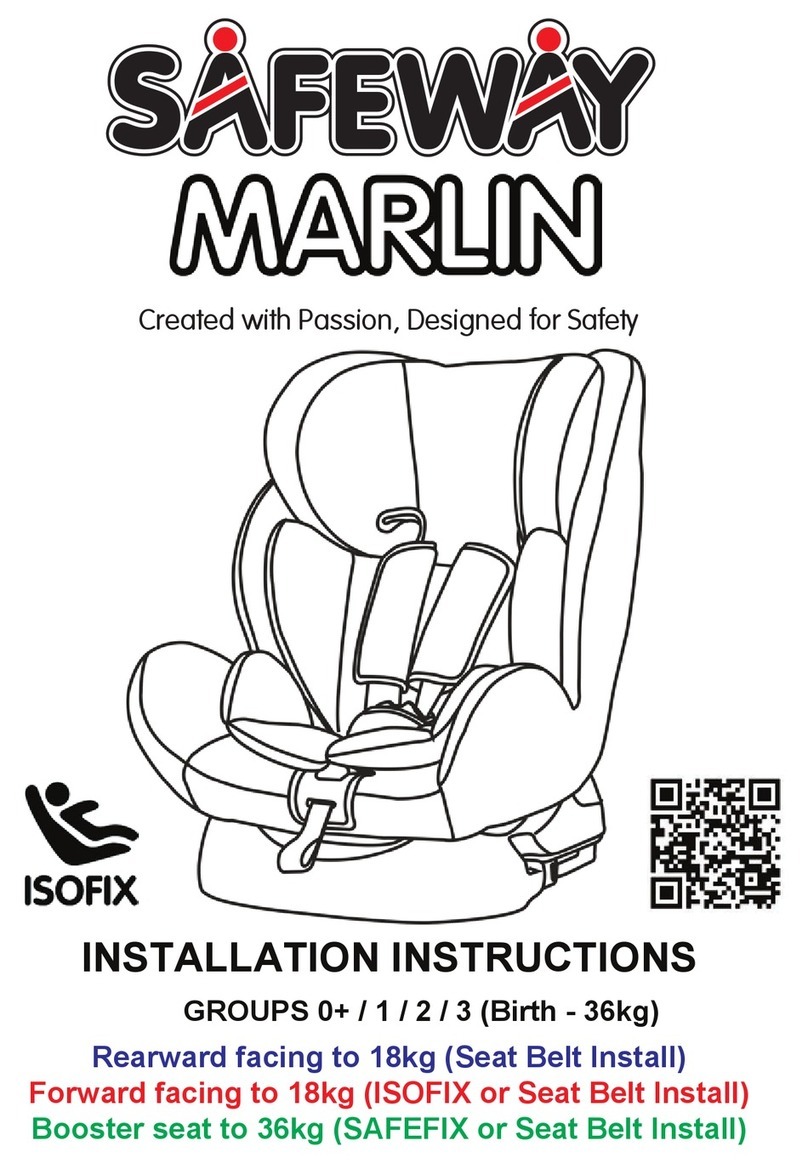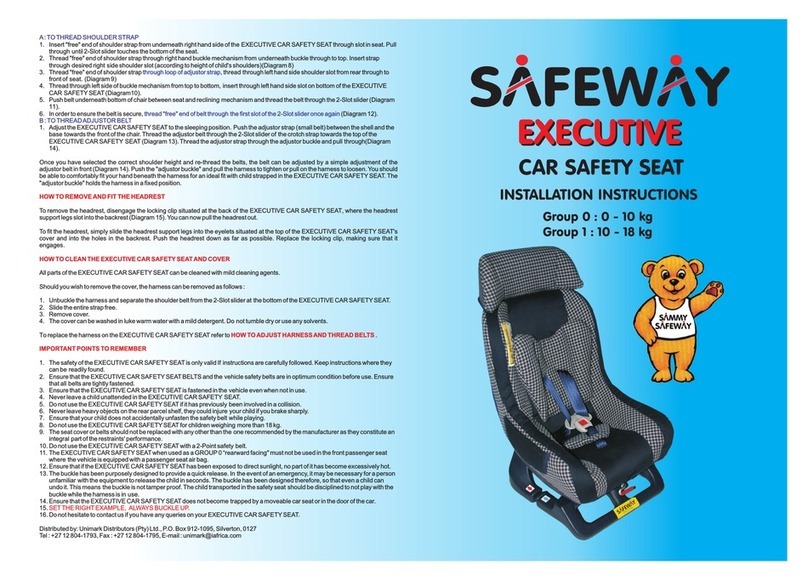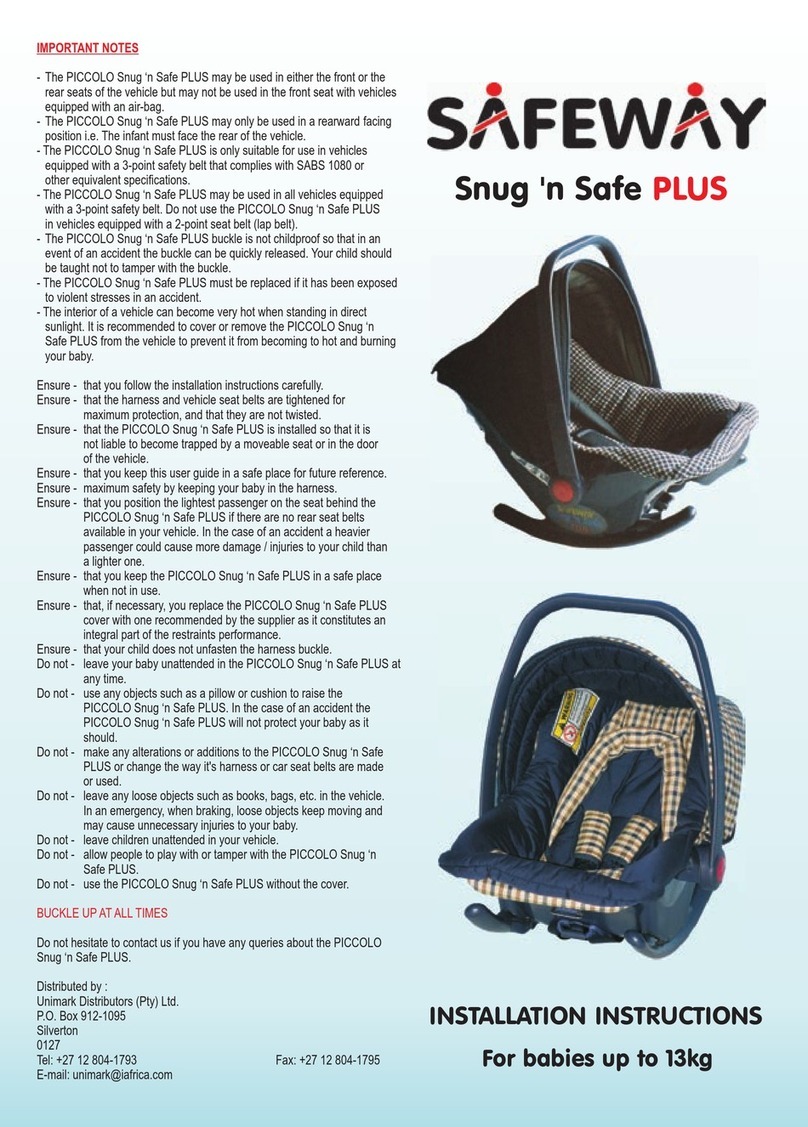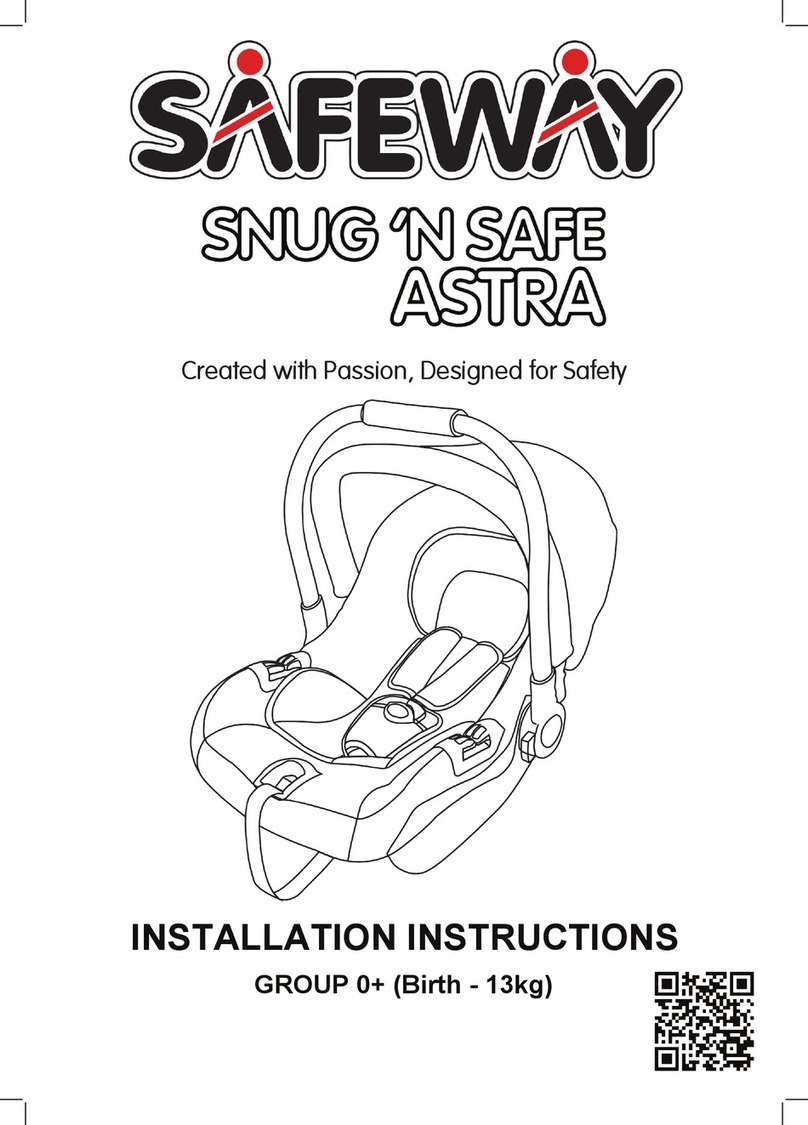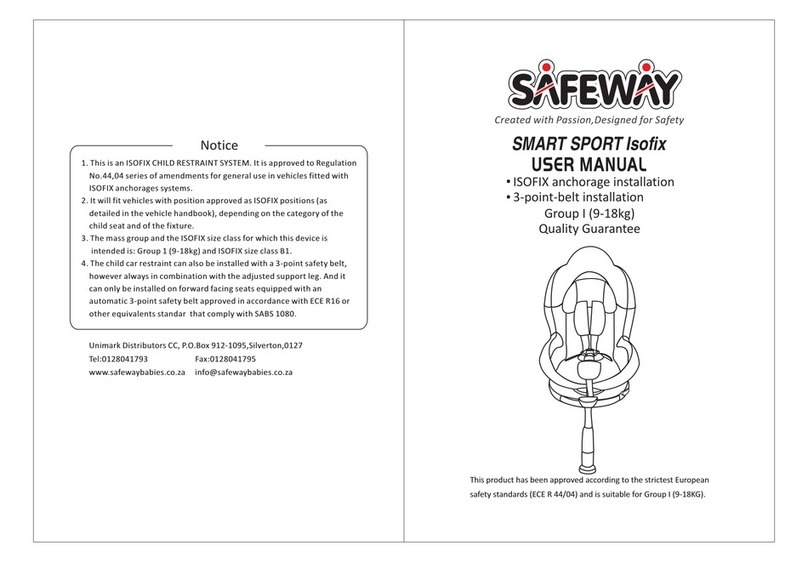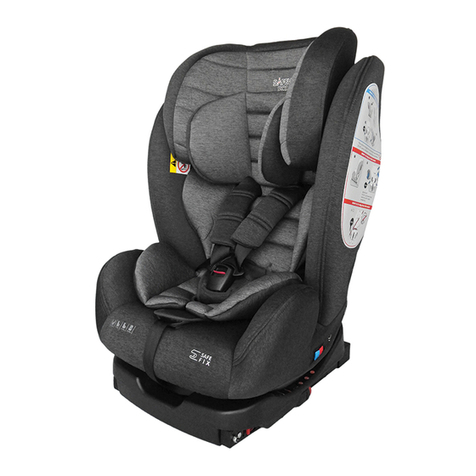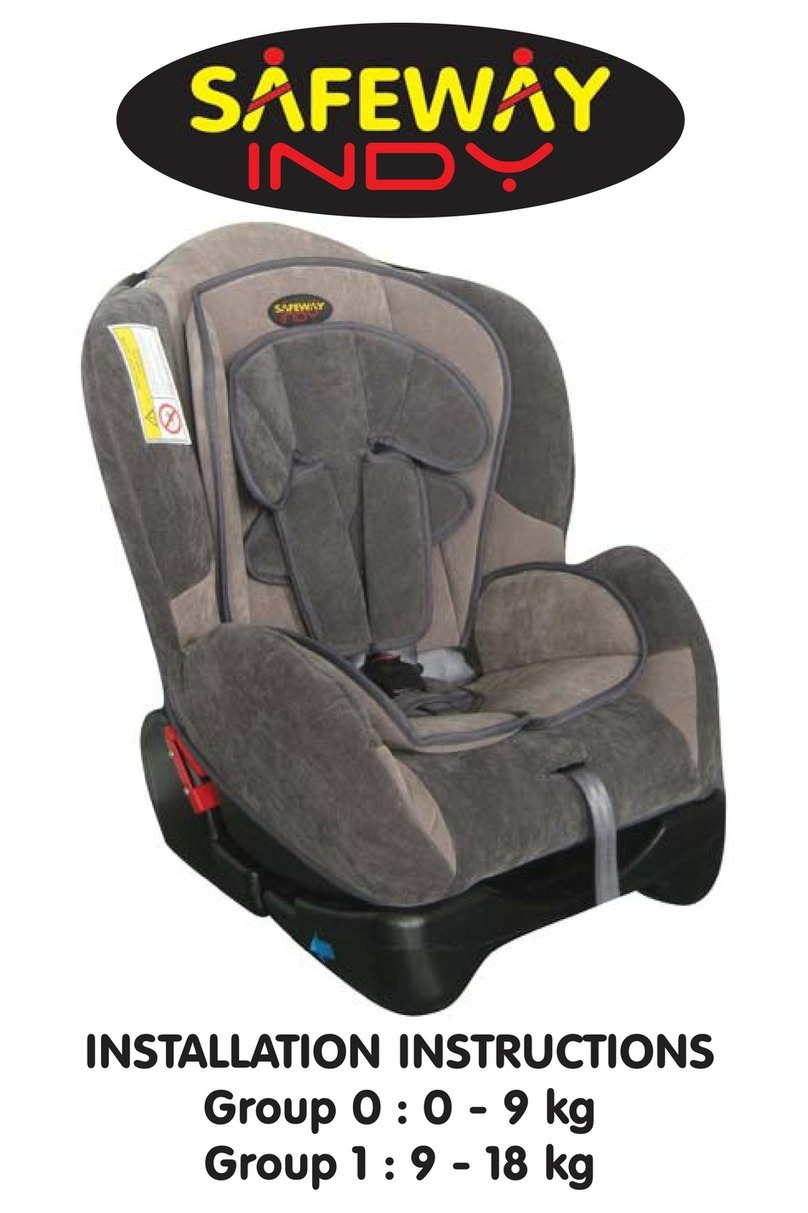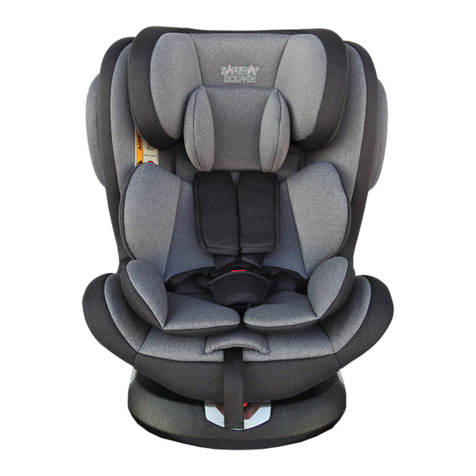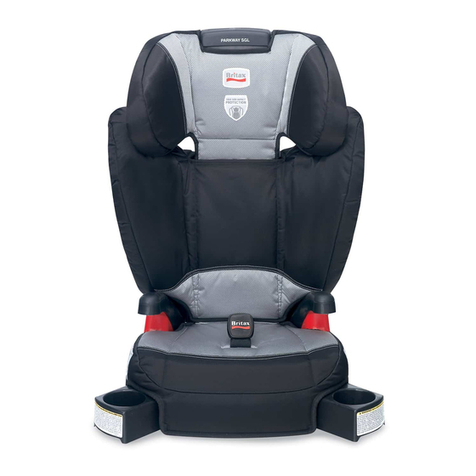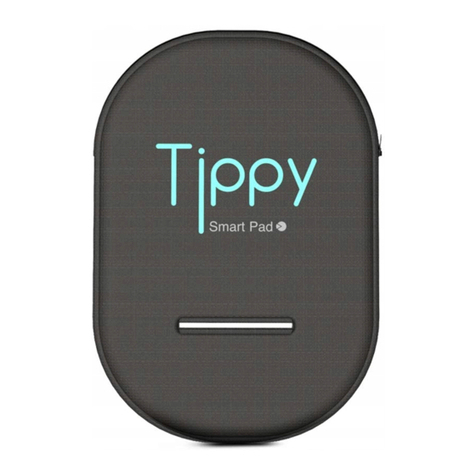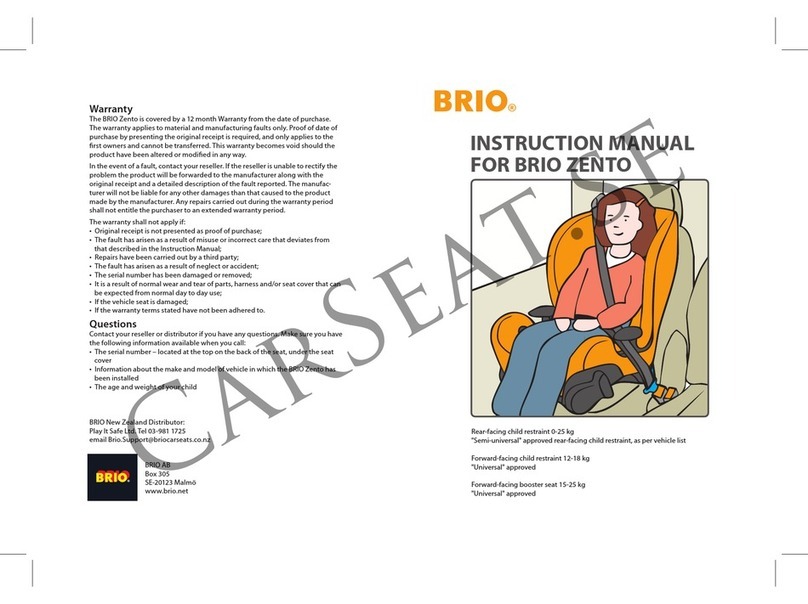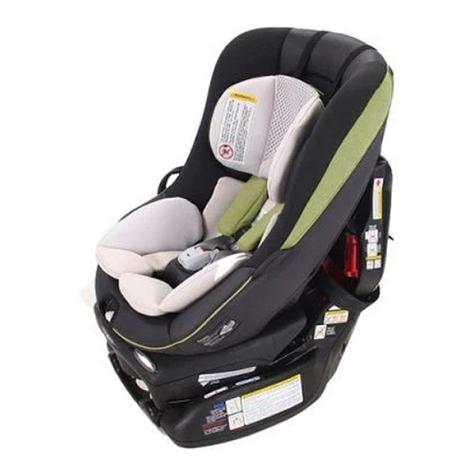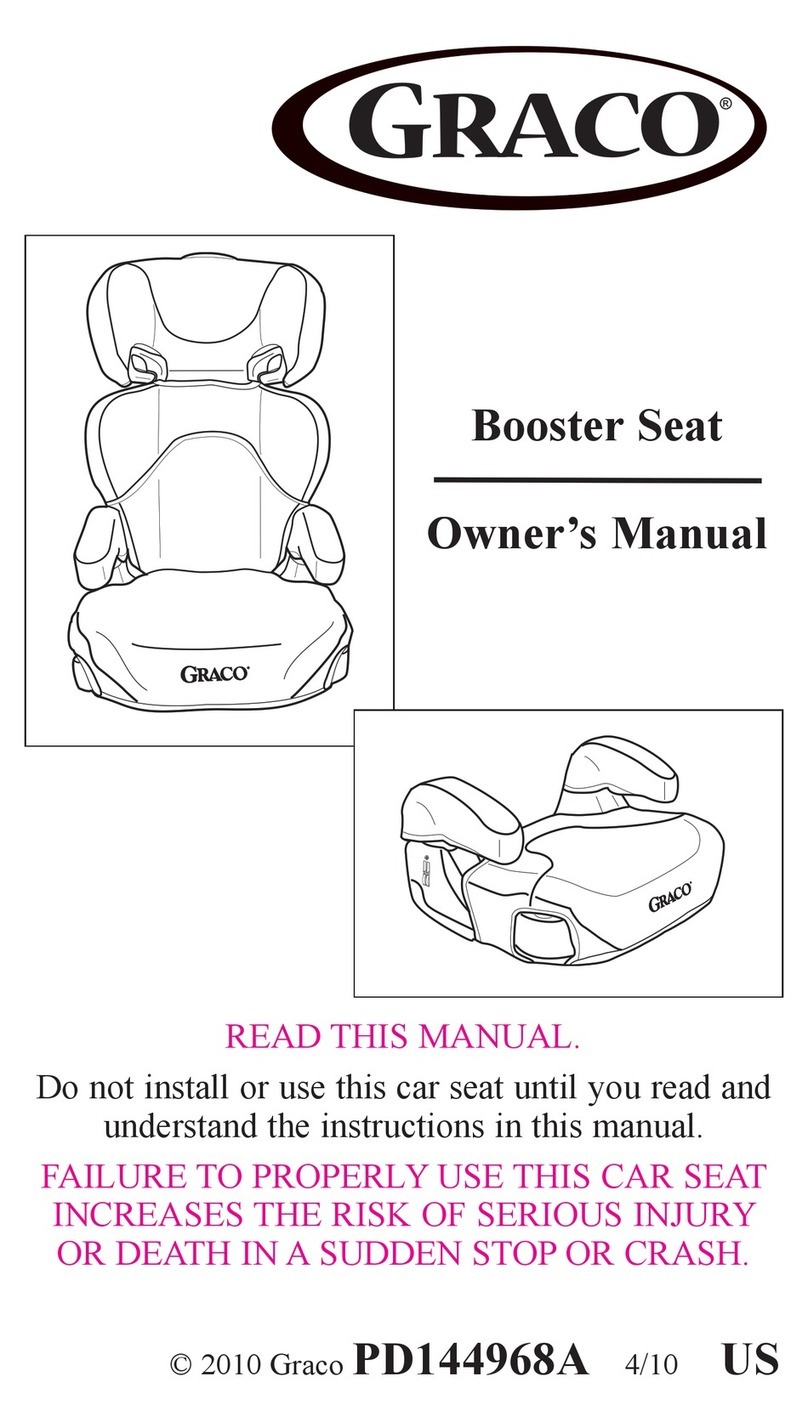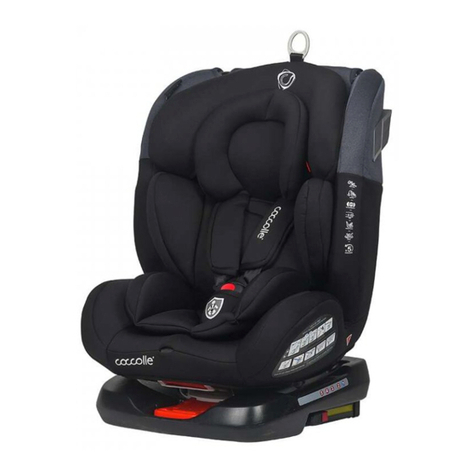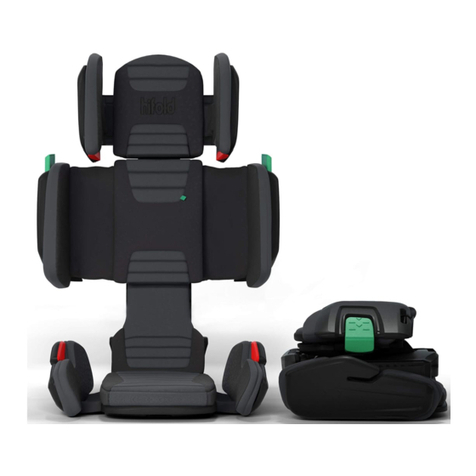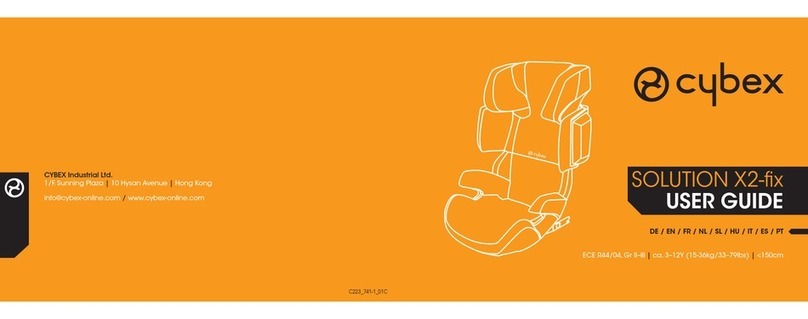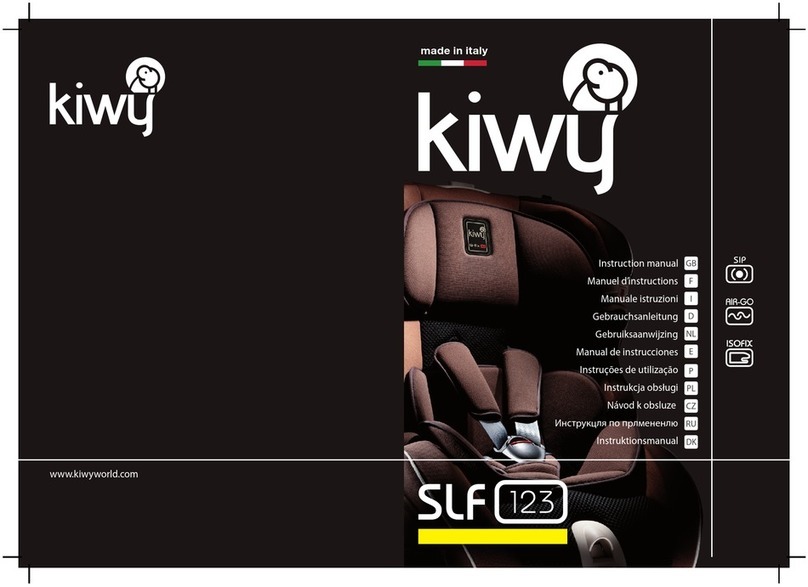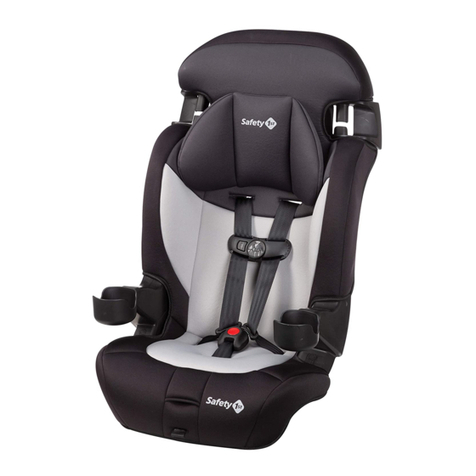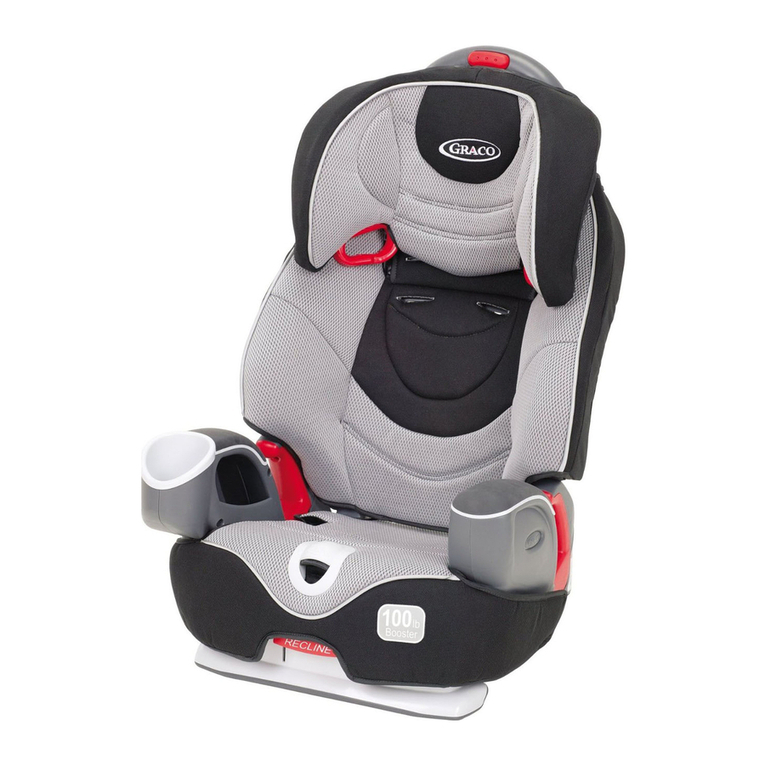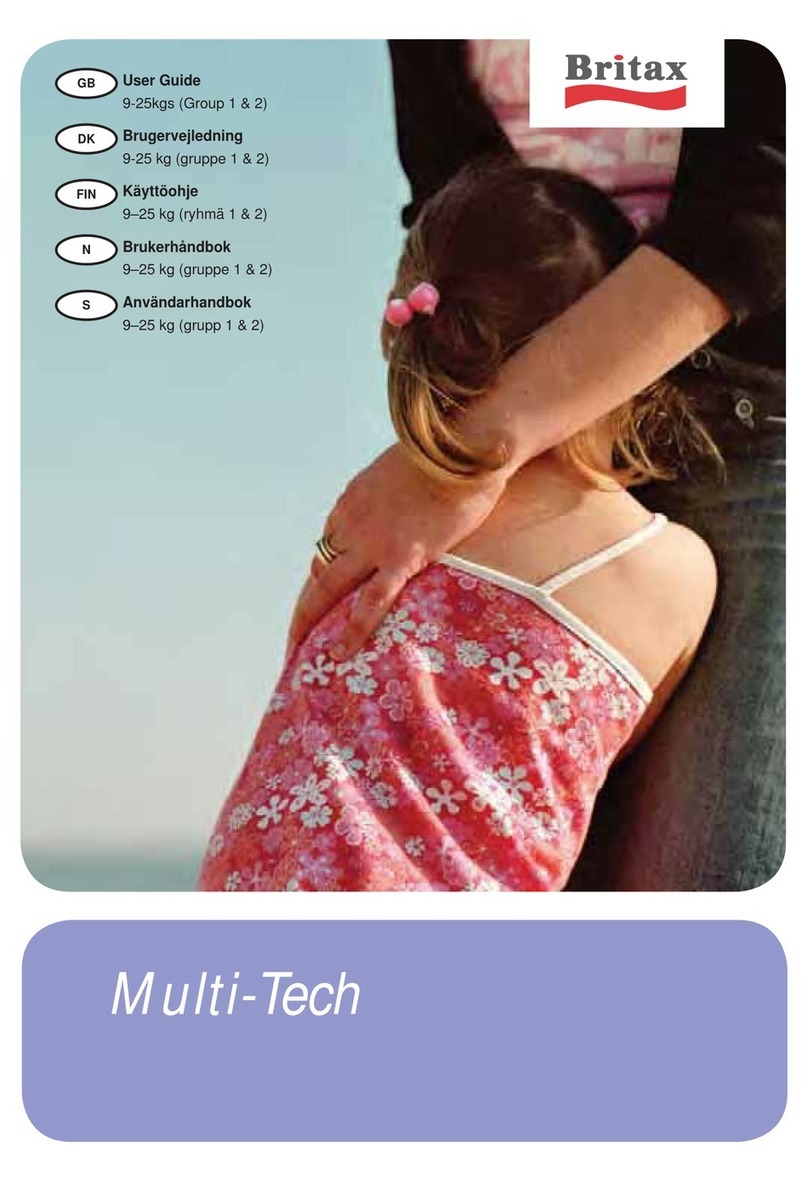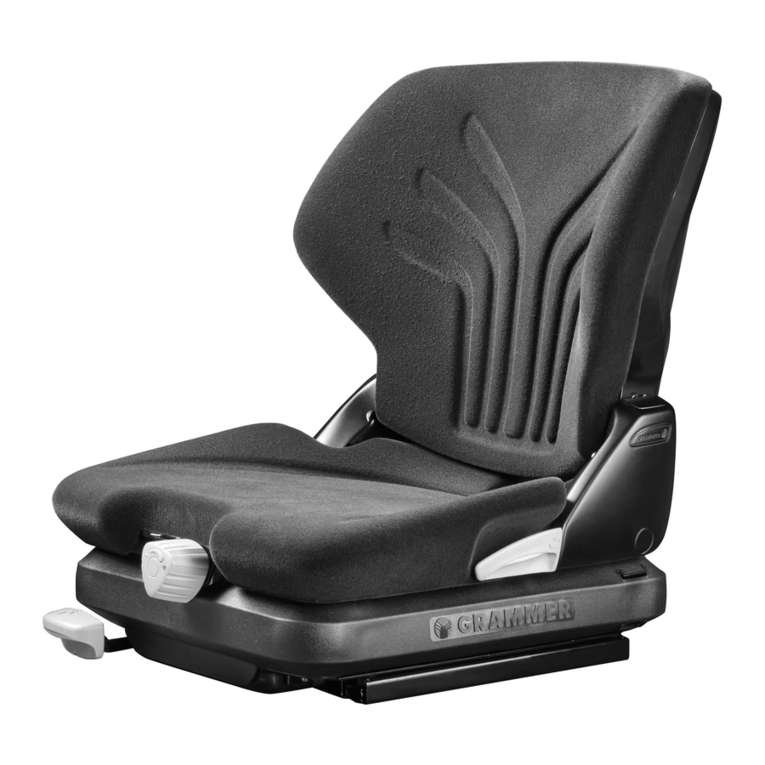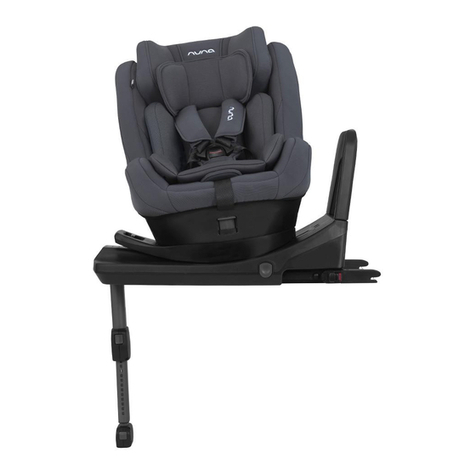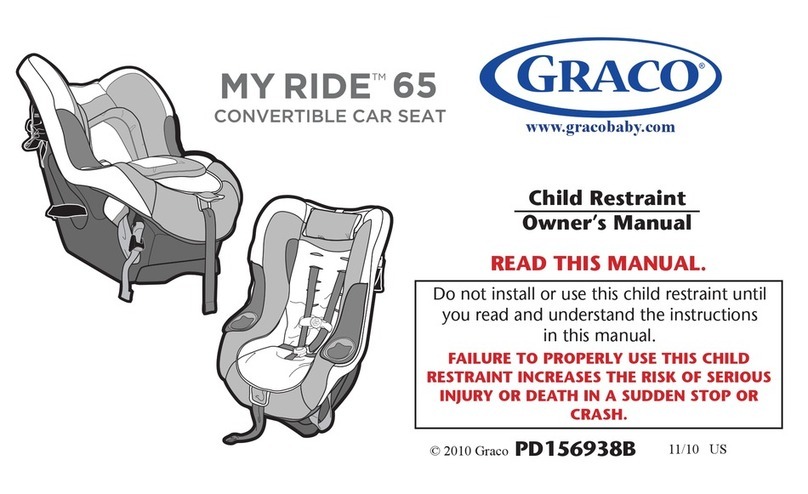
3
• WARNING: Read this instruction manual carefully. Study the illustrations in
this instruction manual before use, and, when installing the car seat. The Child
Safety Seat is a safety product and is only safe when used according to the
instructions.
• WARNING: The correct fitting of the Child Safety Seat is of vital importance for
the safety of your child. See the Installation section and/or the sticker on the
side of the seat.
• WARNING: Ensure that the rigid items and plastic parts of the Child Safety
Seat are so located and installed that they are not liable, during everyday use of
the vehicle, to become trapped by a movable seat or in a door of the vehicle.
• WARNING: Never use the Child Safety Seat rearward facing on a seat
equipped with a front airbag, as this can result in serious injury or death. This
does not apply to so-called "side airbags".
• WARNING: The Child Safety Seat must only be used on a forward facing seat
that is fitted with an automatic 3-point safety belt or ISOFIX points that are
approved according to ECE R16 or other equivalent standards, that comply to
SABS 1080.
• WARNING: The vehicle seat belt holding the restraint to the vehicle should be
tight, the straps restraining your child should be adjusted to your child’s body,
and the straps should not be twisted.
• WARNING: After an accident, the seat may become unsafe due to damage
that is not immediately noticeable. It should therefore be replaced.
• WARNING: No alterations or additions may be made to the Child Safety Seat,
as this could affect part or the overall safety of the seat.
• WARNING: Always cover the Child Safety Seat when the car is parked in the
sun, as plastic and metal parts may become extremely hot and it may be too hot
for the child's skin. The fabric could also unnecessarily discolour.
• WARNING: Never leave your child unattended in the car.
• IMPORTANT: The lap strap should be worn low down, so that the pelvis is
firmly engaged.
• WARNING: Ensure that all luggage and objects likely to cause injury in the
event of an accident are secured properly.
• WARNING: The Child Safety Seat must not be used without the cover. Always
use an original Child Safety Seat cover, as the cover contributes to the safety of
the seat.
• WARNING: For future use of the seat, it is important that you store the
instruction manual in a safe place and close at hand.
Important Notices
